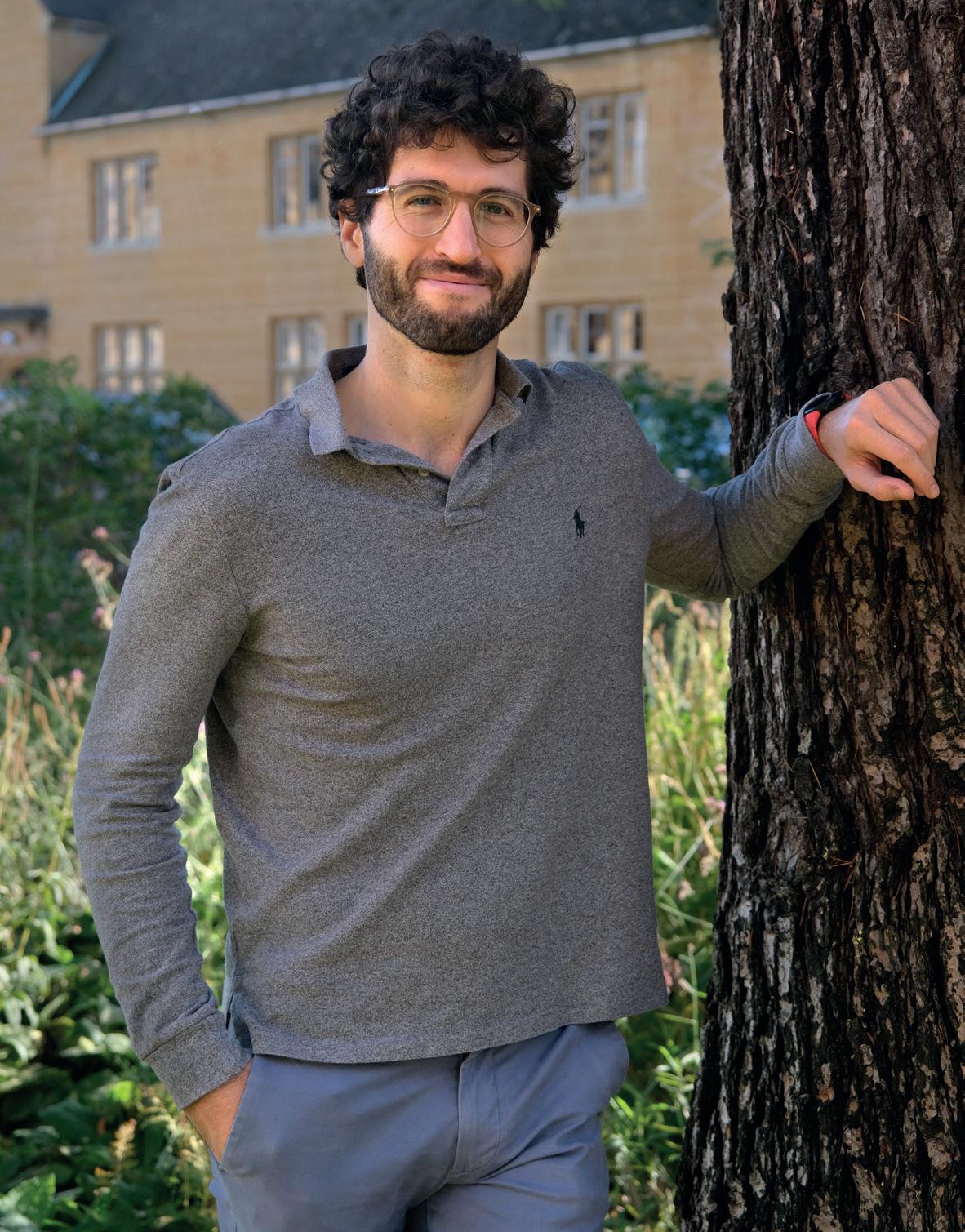
4 minute read
Fellows’ focus
Discover some of the latest research and projects undertaken by our academics.
Building the digital world
Professor Helen Margetts OBE, FBA Professorial Fellow in Society and the Internet, Director of the Public Policy Programme at the Alan Turing Institute for Data Science and AI
In 2018, I set up the public policy programme at the Alan Turing Institute, the UK national institute for data science and Artificial Intelligence (AI). We carry out research that can help government to maximise the opportunities of AI technologies, while managing challenges and risks in a responsible way. At the start, I was worried there might not be enough interest in AI for the programme to take off, but the enthusiasm across government has been phenomenal. We now have more than 55 researchers, working with over 40 affiliated researchers and more than 100 public organisations. Most AI is developed in the private sector, for the private sector, from a narrowly technological perspective – so it feels great to be building a centre of multidisciplinary, objective expertise for sound governance and the public good.

Navigating justice
Professor Andrew Higgins Professorial Fellow in Law, Professor of Civil Justice Systems, part-time practising barrister at the Victorian Bar (Australia) with expertise in mass tort litigation
As the academic member of the Civil Justice Council (CJC), overseeing the modernisation of the civil justice system, I am currently chairing the CJC’s review of pre-action protocols. I also serve as General Editor of Civil Justice Quarterly and publish on all aspects of procedure, but enjoy branching out too. Recently, I joined forces with a former student and Mansfield alumnus, John Yap (Jurisprudence, 2019) and together we won the Australian Academy of Law’s essay competition. I have also published a note critiquing Australia’s lack of administrative and constitutional safeguards following the Australian Government’s decision to deport Novak Djokovic ahead of the 2022 Australian Open. Read the full article at https://dx.doi.org/10.2139/ssrn.4024648.

Madpeople’s Coping Mechanisms
Professor Paul Lodge Professorial Fellow in Philosophy
In September 2023, I organised a conference with my friend and colleague Sofia Jeppsson from Umeå University in Sweden called ‘Madpeople’s Coping Mechanisms’. It was funded by a grant from the Wellcome Trust as part of the project Renewing Phenomenological Psychopathology, which is based at the University of Birmingham.
The conference followed on from a series of online workshops which I have been running with Sofia and others since 2020 entitled ‘Philosophy of Psychiatry and Lived Experience’. In both cases, the aim was to bring people with lived experience of ‘mental illness’ (me included) together to learn from each other. Sofia and I are now in discussion with International Mad Studies Journal about turning the presentations from Madpeople’s Coping Mechanisms into an edited volume. Read more about the conference at www.mansfield.ox.ac.uk/Madpeoples-Coping-Mechanisms.

Researching race and the impact of the Voting Rights Act in southern USA
Dr Andrea Bernini Career Development Fellow in Economics
The 1965 Voting Rights Act – a federal law that removed discriminatory voting practices across the southern United States – sparked widespread political participation and strengthened economic conditions for Black communities. In a recent study, published in the Journal of Political Economy, my colleagues and I show that the policy led to greater racial representation in local governments, increasing the number of Black elected officials. We used data from the US Census and from the National Association for the Advancement of Colored People (NAACP) to track the number of Black elected officials in local governments in the US South from 1962 to 1980, which rose from only 1470 officials to 6440 over this period. The policy also led to an increase in spending on public infrastructure in Black communities, from about $1000 per capita to $2000. This research underscores the importance of policies that ensure all individuals, regardless of race, have the right to vote and that their voices are heard in the political process. Continued vigilance in protecting the right to vote is necessary, as evidenced by the recent surge in voter suppression efforts across the United States.











